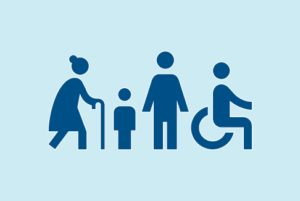Late last week, California’s largest health care union filed paperwork with the Office of the Attorney General to add a ballot measure to next year’s election that would cap compensation packages for hospital and medical group leaders at $450,000.
The Service Employees International Union-United Healthcare Workers West (SEIU-UHW) also filed paperwork for a measure that would create a spending cap on administrative costs for federally qualified health centers.
These measures couldn’t have come at a more precarious time for health care in California. Following the largest cut to health care in our nation’s history, this is a moment when the state should be doing all it can to recruit and retain thoughtful, mission-driven leaders who can develop innovative ways to preserve access to vital health services for patients.
Instead, this proposal will only make it difficult — if not impossible — to do so.
These combative and disruptive tactics are nothing new. In fact, this is the sixth time the union has filed similar compensation cap initiatives at the state or local levels, most recently in Los Angeles. None has gone into effect.
As part of negotiations on a $25 minimum wage for California health care workers, the union agreed to drop the Los Angeles measure (along with other municipal ballot initiatives); it was written into law that they would be prevented from filing local compensation cap measures for at least six years and local minimum wage initiatives for at least 10 years.
It’s important to remember that the six-year moratorium could only have been applied to local measures. A state moratorium could be overturned at any point through a ballot initiative, similar to the one SEIU-UHW filed last week.
Specifically, the cap on compensation would:
- Limit compensation packages for non-profit and investor-owned hospital and medical group leadership to $450,000
- Apply to those who exercise “executive, managerial, or administrative” authority, but not those who primarily provide “medical services, medical research, direct patient care, or other non-managerial, non-executive, and non-administrative services”
- Include all remuneration for past and future work, as well as all forms of benefits except health care
- Rest enforcement with the attorney general, although a private right of action could be pursued as well
There are several steps before this initiative reaches the ballot. The attorney general will issue a title and summary in the next few months, which will then allow SEIU-UHW to collect signatures. The union will have 180 days to collect signatures. The secretary of state will then verify these signatures and approve the measure for the ballot by early summer of 2026. In the coming weeks, CHA will be considering strategies to counter this measure and will stay closely connected to you throughout.
If you have any questions, email me at ccoyle@calhospital.org.



